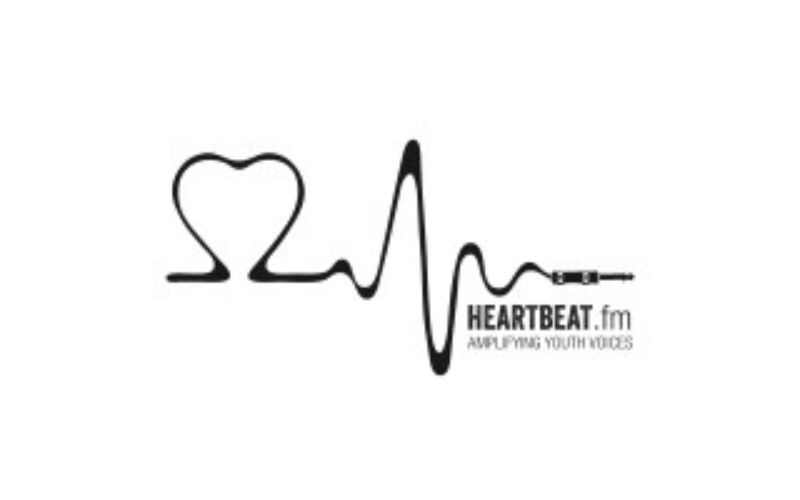Heartbeat plays an impromptu performance on Ben Yehuda, a busy pedestrian-only street in West Jerusalem. Most song are their own compositions, including "Bukra fil mish mish," which is a word play on a Palestinian saying which means "When the impossible becomes possible" -- the reference being that there are Palestinians and Israeli's creating music together. The song, a mix of rock music sung in their rare mix of English and Hebrew reggae tones and Arabic rap, represent the mix of personalities and cultures that make up the group of 14- to 22-year-olds.
Freedom of expression is celebrated through each musician's style, attitude and choice of vernacular -- and through their decision to mix cultural, rhythmic and political backgrounds. The reaction to the concert is mixed: some people applaud and put money in the guitar case; others watch in painful silence then walk off. Some stay with a quizzical look on their face.
The young, talented and hardworking musicians of the Israeli and Palestinian group "Heartbeat" will travel from Israel to the United States later this month, playing concerts and holding conferences at a number of universities and music venues along the East Coast, during their debut tour of the U.S.
Guy Gefen, 22, and a full time musician from Rehovot, about an hour's drive away from Tel Aviv, explains that the most important part of making music is listening. "When I play a solo, I need the band to listen to me in order for me to say something, in order to be something, and I need to listen to the other band to know when is my time to do a solo and in life its exactly the same way and I need to listen in order to talk. If I'm not listening, what's the point of it?" A lesson equally applicable in the politically charged world that surrounds the band.
Gefen's colleague, 17-year-old rapper Muhammad "Moody" Kablawi, regularly travels from Haifa to Jerusalem and other towns to perform. He says that music helps build important bridges in the polarized cultural backdrop. He describes music as a tool to view the "other" more clearly. "I really see that there's no big difference between us. We [Heartbeat band members] are the same, and we have this connection that is really powerful, that can give the message to everyone else."
The founder of the program, Aaron Shneyer, a 29-year-old originally from Washington, D.C., received an Fulbright-mtvU grant in 2007 to go to Israel in order to work on peace programs with Israeli and Palestinian youth from Israel, East Jerusalem and the West Bank. Shortly afterwards, Heartbeat was born to not only teach young musicians how to make music and perform, but to coexist respectfully among one another: "The status quo is separation, hatred and violence. And those three things go hand in hand. The only way to overcome the injustice, violence, and the hatred is to overcome the separation."
Several of the musicians' parents see the optimism of their children. They see the benefits of coming together to make music in what is a politically complex, tense and violent part of the world.
"I feel just great, you know, that she can do something important," said Nisrine Totri, mother of high school student and singer Yasmina. "She can support the peace, and everyone who can help other people around. We need that peace. We don't feel so good with all the problems that we have around us."
In addition to their regular performances, Heartbeat hold workshops to develop musical talent and discuss the social and political issues that affect the students. Initially, all musicians had to travel to Jerusalem, but with the creation of a second base in the northern Israeli town of Haifa it is now more practical and accessible for musicians from Haifa, Nazareth and the West Bank to join Heartbeat. Both of these centers require volunteer educators, who like Aaron, have extensive music and peacekeeping experience, and follow the basic principle of music creation, freedom of speech and mutual respect.
Both Aaron and the other trainers provide individual musical coaching as well as facilitate musical activities such as music composition, jamming and brainstorming sessions to talk about how people act when they are given a chance to step away from tension and into a relaxed and informal environment.
This alternative will be on display at their tour of East Coast universities. On one hand, an opportunity for the young musicians to spread the word and see the world. And on the other, to give American students the opportunity to see young Palestinians and Israeli's interacting outside the dichotomous light they are often cast under.
See original article from source: Heartbeat: Palestinian and Israeli Youth Musicians on Debut Tour in U.S.

